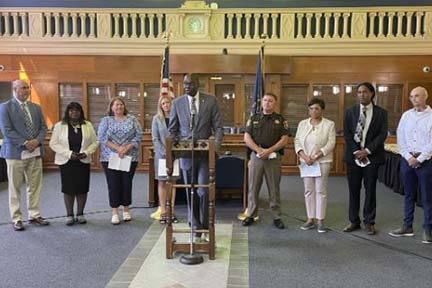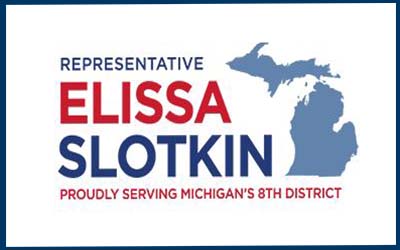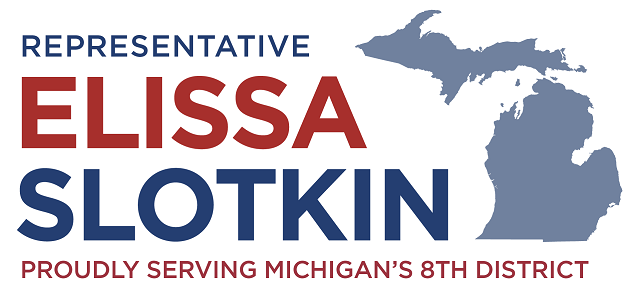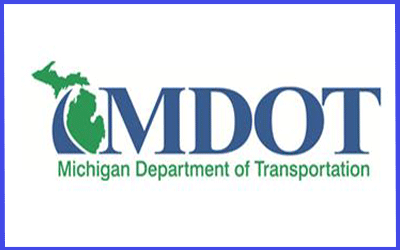
Task Force On Juvenile Justice Reform Approves Blueprint
FOR IMMEDIATE RELEASE
July 18, 2022
Contact: press@michigan.gov
Michigan’s Task Force On Juvenile Justice Reform Approves Comprehensive Blueprint For Transforming Juvenile Justice Statewide
LANSING, Mich. – Today, the Michigan Task Force on Juvenile Justice Reform met to approve a comprehensive set of consensus-based recommendations to transform Michigan’s juvenile justice system. These recommendations are based on an unprecedented assessment of Michigan’s juvenile justice system and are grounded in what research shows works to improve community safety, reduce disparities, and improve youth outcomes.
The approved recommendations establish a statewide blueprint for aligning policies and practices across the juvenile justice continuum with research and best practice, including:
- Expanding diversion opportunities for youth who are not a public safety risk.
- Creating a statewide juvenile public defense system and best practice standards.
- Increasing funding for effective community-based programs, including alternatives to incarceration, and tying funding to evidence-based practices.
- Adopting data-driven tools to guide diversion, court, and detention decisions.
- Strengthening standards and quality assurance for local probation practices and statewide residential programs.
- Expanding data collection to measure system performance, outcomes, and equity.
- Establishing a statewide advisory board of youth and families impacted by the system to help guide ongoing system improvements.
The bipartisan Task Force was initially formed in June 2021 to study the juvenile justice system and develop data-driven recommendations for statewide reform. This assessment involved case level data analysis, focus groups with hundreds of diverse stakeholders across the state, and listening sessions with youth and families directly impacted by the system. Based on this assessment, multiple working groups met for months to identify and make recommendations to the Task Force for how best to improve the system.
“Michigan continues to lead on justice issues, and these consensus-based recommendations reaffirm our dedication to support our young Michiganders and improve community safety,” said Governor Gretchen Whitmer. “These recommendations will reduce how many youth come into contact with the juvenile justice system and also serve young people that do enter the system more effectively and developmentally appropriately. We won’t let one mistake in a young person’s life shatter their future.”
“I’m proud of the work of the Task Force and what we have achieved for our young people today,” said Supreme Court Justice Elizabeth Clement. “We are providing local courts with more tools to guide diversion and disposition decisions, more resources to keep young people in their homes and communities and effectively meet their needs, and more training and technical assistance through the State Court Administrator’s Office to help local courts to implement new policies and programs effectively.”
“I am grateful to serve as Chair of the Task Force and work alongside these committed public servants to chart a new path forward for Michigan’s juvenile justice system,” said Lt. Governor Garlin Gilchrist II. “With a commitment to data collection, transparency, and inclusion of the voices and perspectives of those most impacted by the system, we will be able to make real change in our communities. These recommendations will serve as a blueprint to not only improve public safety, but reduce disparities.”
“I have long been an advocate for ensuring all youth who come into contact with our court system have access to qualified counsel, that taxpayer dollars are used efficiently for proven programs and practices, and that we use data to guide system decisions and promote accountability,” said Representative Sarah Lightner. “I’m pleased that the Task Force recommendations move us so firmly in these directions.”
“Every young person deserves the opportunity to learn and grow from their mistakes, while also still being held accountable for their actions,” said Senator Sylvia Santana. “Reform such as establishing a minimum age of court jurisdiction and competency, eliminating court fines and fees, and developing probation and reentry standards that make family engagement central will make a meaningful difference for youth, families, and communities.”
“We all want safer communities and to make sure kids receive the services they need to get their lives back on track,” said Chief Everette Robbins. “I’m pleased that we are investing in effective community-based services while also focused on improving services in facilities for those kids that do commit more serious offenses so they can reintegrate successfully back into the community.”
The task force was composed of leaders from across branches of government, state and local agencies, those working in and impacted by the system, and other stakeholders, and was facilitated by The Council of State Governments (CSG) Justice Center. As a next step, the task force will release a full report of the assessment findings and approved recommendations on July 22, and then work to translate and adopt the approved recommendations into legislation, administrative, court rule, and other policy changes.
To learn more about the recommendations, please visit https://










